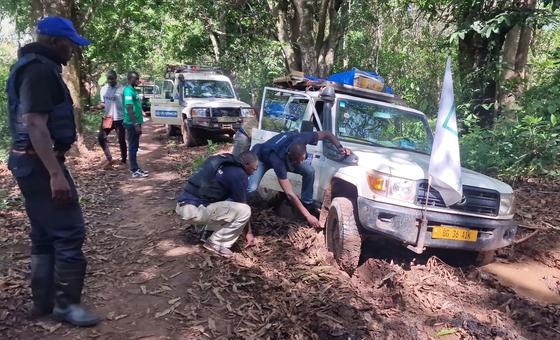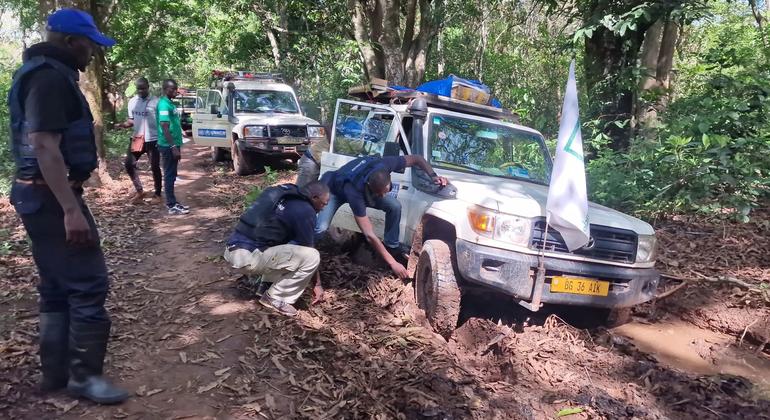
In a country of some six million people, over two million suffer from acute hunger, and the prevalence of chronic malnutrition in children under five of around 40 per cent is one of the highest in the world, according to the UN famine prevention and response coordination office (OFPRC).
“Because of the protracted crisis, the humanitarian response remains essential and lifesaving,” said Response Coordinator Reena Ghelani, concluding an official visit to the country.
Fragile country
“CAR remains a fragile country,” underscored Mohamed Ag Ayoya, UN Resident and Humanitarian Coordinator.
“This is not the time to forget CAR. The humanitarian country team is committed to keep working with the Government and partners to respond to urgent needs, while strengthening households and communities’ resilience.”
In 2023, the number of people in need of humanitarian assistance and protection is estimated at 3.4 million, of which 2.4 million are due to served by the $533 million Humanitarian Response Plan.
However, despite massive needs, aid programmes remain stymied by lack of funding, insecurity and poor infrastructure.
Protecting civilians
The remote Haut-Mbomou prefecture, in southeast CAR, is one of the worst affected regions. At the start of this year almost 80 per cent of the population there were in urgent need of security and protection.
Increased clashes, abductions and barricades set up by armed groups further exacerbated the situation, leaving many communities cut off from assistance.
Against this backdrop, the UN peacekeeping mission in the country, MINUSCA, has stepped up long-range patrols in the strategic Mboki-Zemio axis in the prefecture to improve protection of civilians and escort humanitarian convoys.
MINUSCA also recently launched quick impact projects to repair six bridges in Mbomou prefecture, to improve humanitarian access for communities as well as for peacekeepers contributing to their protection, mission spokesperson Lt. Col. Abdoul Aziz Ouédraogo said.



